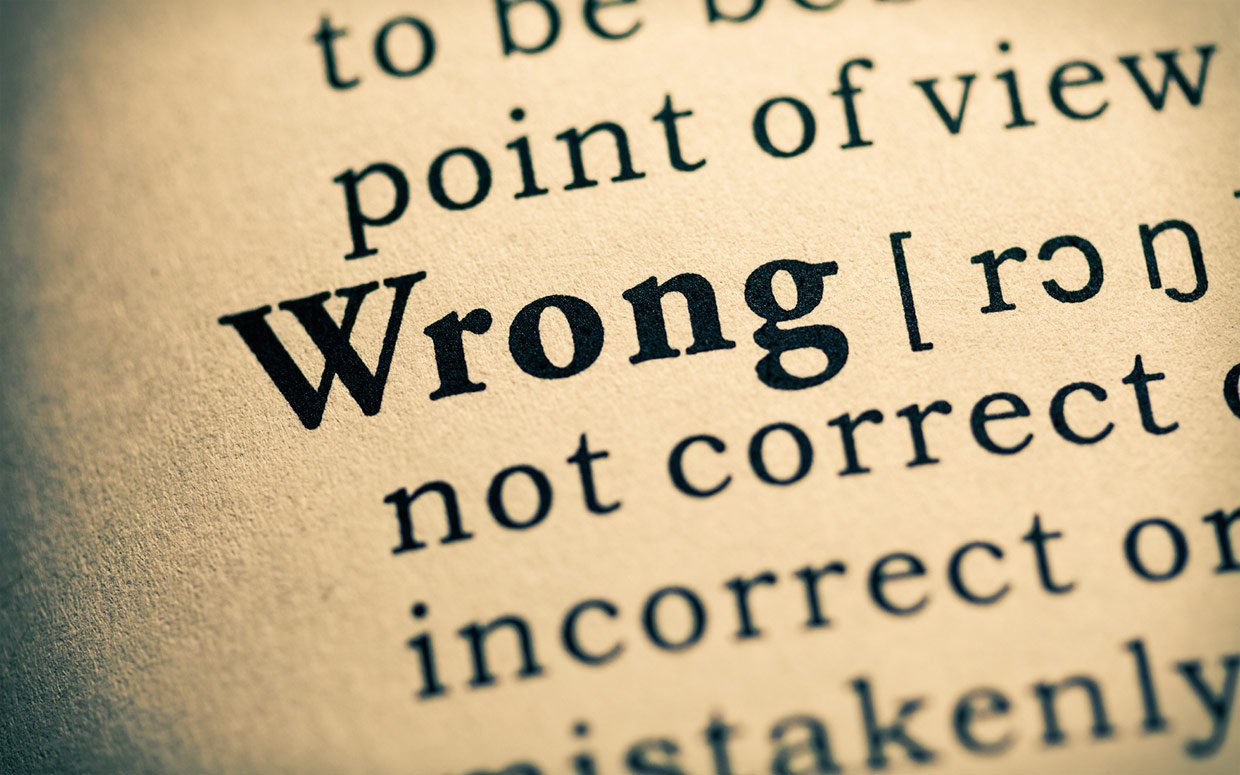How to Be Wrong
These days, it seems people would rather perish than admit they are wrong—about anything. This is silly and exhausting and makes absolutely no one happy, yet every day we see fully grown adults persist in defending words and actions that are quite clearly erroneous.
We might even—gulp!—be that person ourselves.
Which makes us wonder. Is all this clamoring to “be right” because we’ve suddenly become mulishly obstinate and unreasonable? Or … have we simply forgotten how to be wrong?
Let’s go with that: We’ve simply forgotten. To err is to be human, but to freely acknowledge it? That takes some practice. So here’s a refresher course. Let’s go!
First, the language. Sometimes we don’t say anything because we just don’t have the words. When presented with updated information or a new point-of-view that rings suspiciously true, we can simply say:
“Hmmn, you may be right.” or
“Thanks for the new information. I’ll consider that.” or
“Interesting, let me get back to you.”
Or maybe you realize you’ve made a mistake in your words or attitude or actions. Maybe you realize that your error was based on incorrect information or a false assumption or simply a bad mood. Guess what? You can just say so! Like this:
“I was wrong.”
“I made a mistake.”
“I received new information and I’ve revised my opinion.” or
“I’ve changed my mind.”
Once you become an Advanced Admitter of Error, there’s this:
“I realize I was wrong and you are, in fact, right.”
Okay, now you’ve mastered those simple statements, you’ve noticed a couple of things. One, the world did not stop turning.
And two: Oh, my gosh! Don’t you feel lighter already? Like you could float to Hawaii, right? Because here’s the well-kept secret about admitting error: it is enormously liberating! It feels fantastic!
Well-kept secret #2: Freely admitting error is the world’s best public relations technique. It tells the world a great deal about you. It says:
You are confident and secure in your intellectual abilities.
You embrace change—even in yourself.
You are open-minded and welcome a diversity of opinions and experiences.
Other people’s thoughts and feelings matter to you.
You prefer to keep a clean slate.
Acknowledging and admitting error is far from shameful. It is, in fact, an act of sublime grace. An act of grace where everyone wins.
The person carrying the weight of the error gets to drop it.
The person harmed by the error feels the balm of acknowledgement.
The people on the periphery get to witness adults being big-hearted, humble and humane. Kids especially love this. It makes them feel free to make, and then unmake, their own mistakes.
In summation, admitting you are or ever have been wrong? It won’t hurt you. On the contrary, it just might make you feel fantastic.
Because to err is human, but to admit it? Divine.

